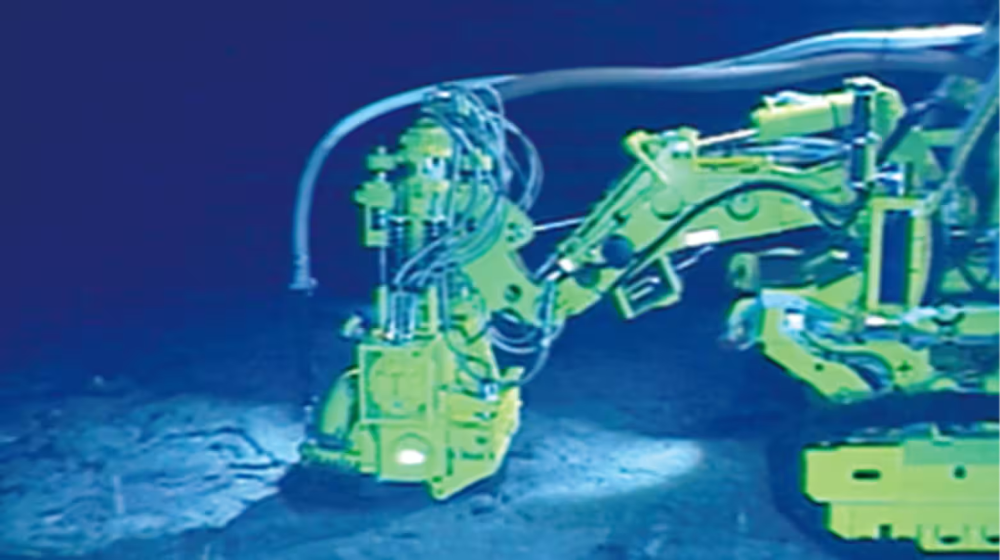
Tập đoàn Furukawa của Nhật Bản đang phát triển công nghệ khai thác đất hiếm dưới đáy biển
-
Tập đoàn Furukawa của Nhật Bản đang tiên phong phát triển thiết bị nguyên mẫu để khai thác các nguyên tố đất hiếm và kim loại quý hiếm từ đáy biển, tận dụng kinh nghiệm khai khoáng trên đất liền.
-
Furukawa sở hữu khoảng 20 bằng sáng chế liên quan đến khai thác biển, chiếm 30% tổng số bằng sáng chế của Nhật trong lĩnh vực này, đứng thứ hai toàn cầu sau Trung Quốc (nắm gần 80% bằng sáng chế).
-
Thiết bị thử nghiệm bao gồm máy khoan thủy lực có thể di chuyển trên địa hình gồ ghề và bơm bùn vận chuyển hỗn hợp lỏng – rắn, được phát triển từ công nghệ khai thác truyền thống.
-
Kể từ năm 2018, công ty đã tham gia chương trình nghiên cứu do Bộ Kinh tế, Thương mại và Công nghiệp Nhật Bản ủy thác thông qua Tổ chức Kim loại và An ninh Năng lượng Nhật Bản (JOGMEC).
-
Năm 2023, Furukawa thành lập một nhóm chuyên trách gồm khoảng 10 người, tập trung hoàn toàn vào phát triển công nghệ khai khoáng biển sâu – bước đi nội bộ hiếm có trong nhiều thập kỷ.
-
Theo hãng luật Kudo & Associates, các bằng sáng chế của Furukawa có giá trị kinh tế và kỹ thuật đáng kể, trong bối cảnh quốc tế đang cạnh tranh khai thác tài nguyên đáy biển.
-
Mỹ dưới thời Tổng thống Donald Trump ký sắc lệnh tháng 4/2025 thúc đẩy khai thác biển sâu nhằm đối trọng với ảnh hưởng ngày càng tăng của Trung Quốc trong lĩnh vực đất hiếm và an ninh chuỗi cung ứng.
-
Cơ quan quản lý đáy biển quốc tế (ISA) đang nỗ lực hoàn tất quy định khai thác trong phiên họp tháng 7, nhưng gặp phản đối từ một số tổ chức và chính phủ do lo ngại tác động môi trường.
-
Trong vùng đặc quyền kinh tế Nhật Bản, giáo sư Yasuhiro Kato từng phát hiện lượng lớn tài nguyên đất hiếm dưới đáy biển. Công ty Pacific Metals của Nhật dự kiến thương mại hóa công nghệ luyện kim dưới biển vào năm tài chính 2029.
-
Nhiều công ty Nhật khác cũng đang xúc tiến phát triển và thương mại hóa công nghệ khai thác dưới biển khi lĩnh vực này bước vào giai đoạn chuyển đổi từ nghiên cứu sang thực tiễn.
📌 Furukawa đang dẫn đầu Nhật Bản trong phát triển công nghệ khai thác đất hiếm dưới đáy biển với 30% bằng sáng chế quốc gia. Mỹ hỗ trợ mạnh qua sắc lệnh của Trump, còn Trung Quốc vẫn chiếm gần 80% bằng sáng chế toàn cầu. Công nghệ khai khoáng biển sâu đang được thương mại hóa, mở ra cơ hội chiến lược giúp Nhật Bản giảm phụ thuộc nhập khẩu và củng cố an ninh kinh tế trong bối cảnh cạnh tranh địa chính trị leo thang.
https://asia.nikkei.com/Business/Markets/Commodities/Japan-s-Furukawa-uses-mining-expertise-to-extract-seabed-rare-earths
Japan's Furukawa uses mining expertise to extract seabed rare earths
Read Next
Thảo luận
Follow Us
Tin phổ biến



